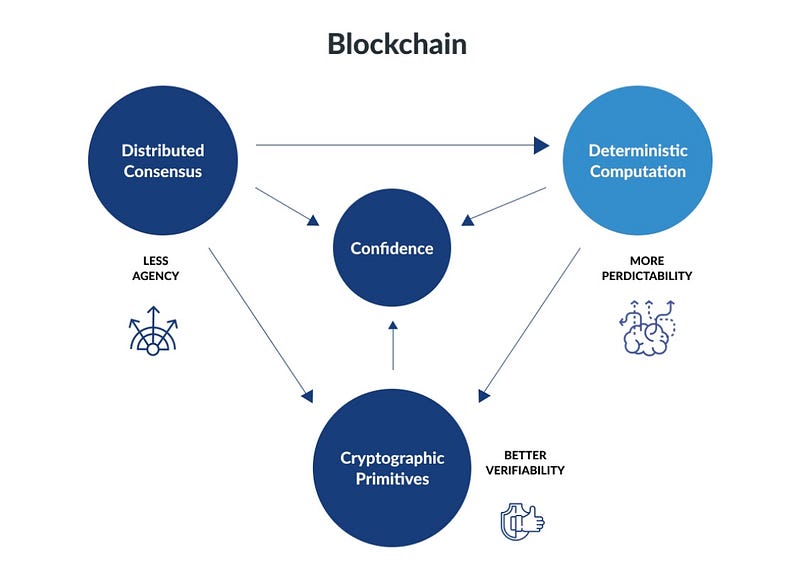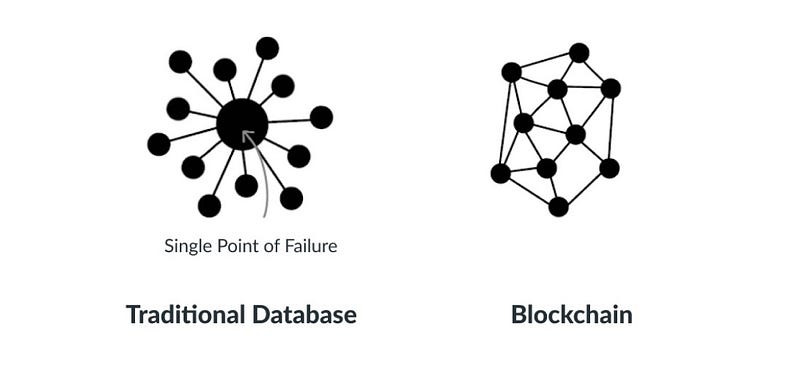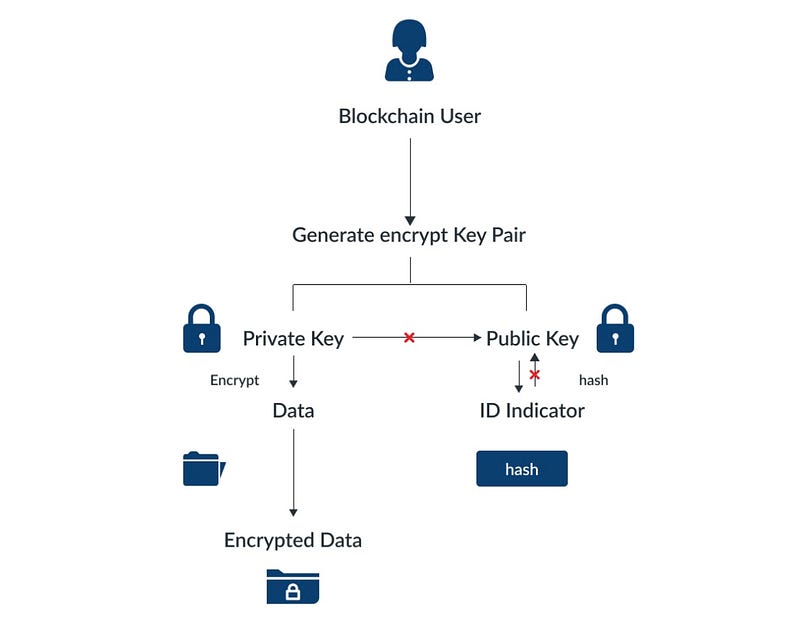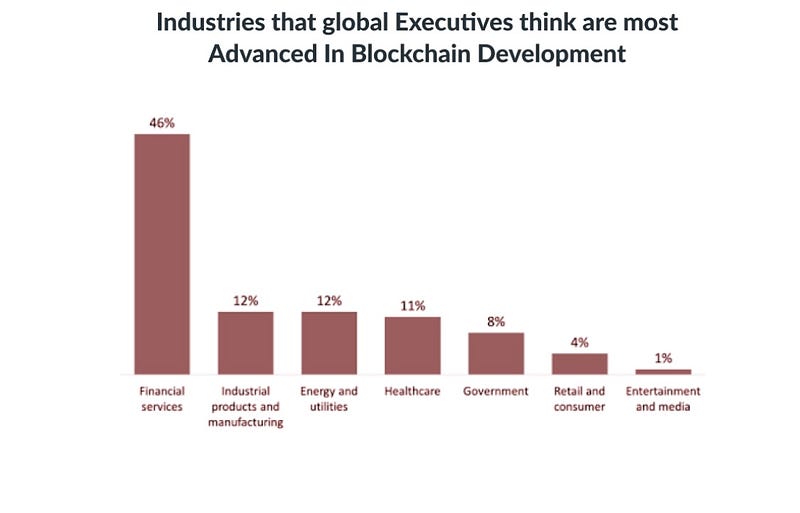Blockchain — pros & cons
Every technology has advantages and disadvantages, in some situations this solution is perfect, in some is not.

Every technology has advantages and disadvantages, in some situations this solution is perfect, in some is not.
Especially with blockchain, there are plenty of use cases which are so suitable to be implemented in decentralized way, but also there are scenarios which do not fit to web3.
Agenda:
- intro,
- Pros,
- Cons,
- Summary,
- Bibliography.
Pros
- Decentralized trust,
- Lower optional cost,
- No single point of failure,
- Enhanced security and confidentiality,
- Quick transactions,
- reduce fraud,
- Transparent and universal recording system,
- Better accessibility,
- Prevents double spending,
- Seamless integration into existing systems.
- Decentralized trust

The biggest advantage of blockchain is decentralization. There is absolutely no need for middlemen, what causes potentially more secure and private medium of storing data. It is worth to mention that not every blockchain is automatically super safe, it depends on developers code, but potential is huge.
- Lower optional costs
Blockchain does not require third party institutions and their tons of documents to proceed some transactions. Network is made as peer to peer, what means that middlemen are skipped and only cost is fees for miners/validators.
- No single point of failure

Centralized databases are potentially easy to hack. If hacker wants some holdings or personal data, he just have to attack an institution, when it is done, he can change/take any data. Blockchain is transparent, but also it is so hard to edit released data.
- Enhanced security and confidentiality

As entire blockchain is distributed across global network and secured with cryptography, it gains a lot of security and confidentiality from user. Centralized storages will never have so big potential.
- Quick transactions
Blockchain can proceed an enormous amount of transactions in the blink of an eye. Moreover, holdings are practically immediately transferred across countries. Traditional financial system is slow and making a lot of problems abroad.
- Reduces frauds

Blockchain is fully transparent, each person, even non technical one, can follow different transactions on blockchain explorer. It is hard to fraud anyone, especially when your address of wallet is visible for everyone.
- Transparent and universal recording system
As blockchain is transparent and does not allow to connect physical identify with wallet address (utill user transfer assets to identified account), recording system is a true revolution. It connects anonymous and security.
- Better accessibility
To access blockchain, there is no need for some special tools or hardware. Computer and connection to the Internet is totally sufficient.
- Prevents double spending
Every transaction is verified in network nodes, then added with unique hash. There is no place to hack an ecosystem in case of double spending.
- Seamless integrations into existing systems
Blockchain gives opportunities to scale business by an easy integration. One of the solutions is BaaS (Blockchain as a service). It can be implement to different kind of platforms, so that features from web3 are associated into the app.
Cons:
- Scalability,
- Security,
- Cost,
- Competitiveness,
- Speed.
- Scalability
If transactions are considered to make in seconds, there can be delays. It is still faster than standard banking system, but it should be scaled. Some of the solutions improved rating of transactions per second, but they lost some security to achieve it.
- Security
Blockchain is extremely secure, but still needs some improvements. All in distributed ledger is connected to digital identity, which is a wallet. As it is transparent, anyone can spy assets transfers, it is an advantage and disadvantage.
Moreover, some of available solutions can be misleading and have a lot of bugs. Especially, latest and new blockchains. User should be always ready and vigilant.
- Cost
Some of the most famous blockchains can be very expensive, lowering fees always take decreasing security. Mining requires a lot of power, which should be rewarded.
- Competitiveness
Nowadays, miners are connecting into groups and institutions, then invest in hardware, cooling systems and computing power. In early 2010s everyone could be a miner of bitcoin, few years later it is practically impossible to get paid, because of mining companies.
This mining companies can take more and more control, it is hardly possible for one institution to own 51% of the network, but miners should be more diversified.
- Speed
Transactions in blockchain require miners or validators, it is slowing down network working, especially when there is a big traffic. It is still super fast in making transfers abroad, but centralized banking system is still faster in national transactions.
- Summary
As it can see, blockchain technology can be used in different branches of a daily live, starting with finances industry. It has a lot of extremely interesting advantages, but still need some improvements.
Blockchain is a very fresh technology, we still do not know in which direction it will be heading to, it is a big evolution which is happening right now.
Bibliography:
- https://www.pixelcrayons.com/blog/pros-and-cons-of-blockchain-technology-your-complete-go-to-guide/amp/#1_Decentralized_Trust




